“Nothing makes a man so adventurous as an empty pocket.”
~ Victor Hugo, The Hunchback of Notre Dame
“The players take on the roles of the heads of influential families in Paris at the end of the 14th century. In the shadow of the Notre Dame cathedral, the players compete for prosperity and reputation. Each family controls one of the boroughs that surround the site of Notre Dame. As head of his family, each player tries, through clever use of his action cards, to advance the power and prestige of his family, but penalties are assessed on those who do not take care of the health of the people who live in their borough. The player with the most prestige at the end is the winner.”
The board is made up of several connected areas, one per player.
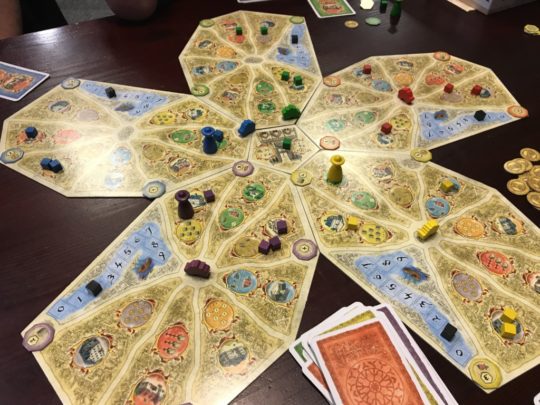
Each is divided into a section representing different buildings which provide different actions for you to take. You also have a carriage you drive around the board which is why each of these regions is connected to each other.
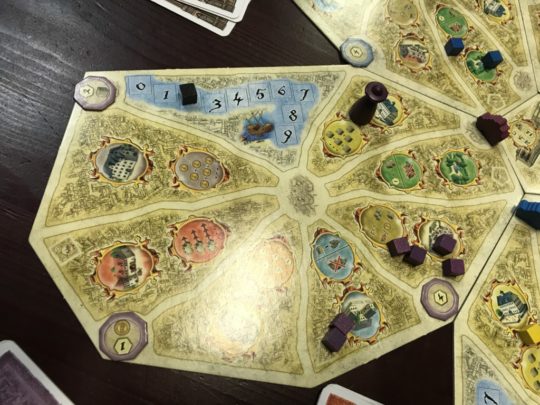
Actions are taken with a draft. Each player has their own identical deck of 9 cards and they will give it a shuffle and draw 3. Then, each player will draft these 3 cards to the left so your hand will have cards from 2-3 different players. Only 2 cards will be used each turn…
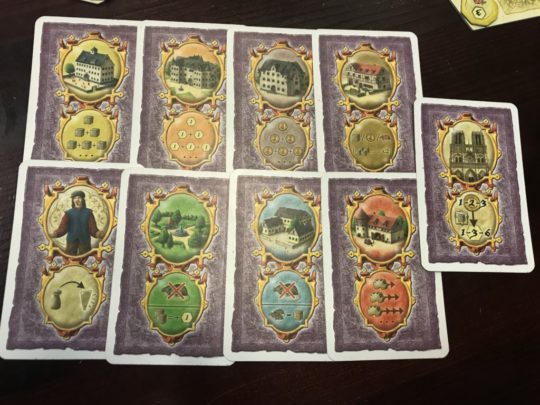
Cards
The cards (mostly) add a cube from your supply into the relevant area on your board then activate it.
3 of them provide resources, Cubes from the supply, Points or Money… 1 per cube you have in that area. Another action lets you move a pawn into that area and take its action. The pawn itself counts as a cube when the area is activated.
One area lets you choose between taking a cube, 1 money or removing a Rat.
Rats
Speaking of Rats, there is a track to mark your Rat problem.
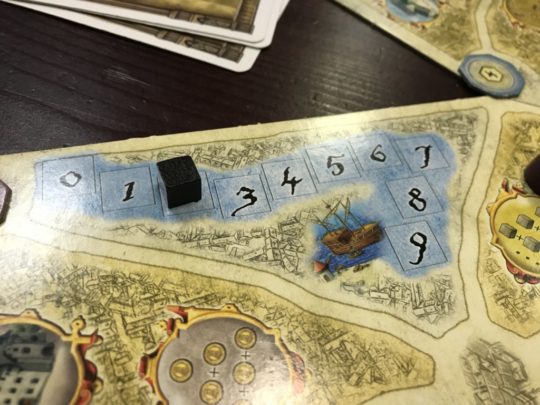
2 of the areas on your board let you reduce this Rat track, as well as give you a little bonus for other actions.
One lets you influence Notre Dame in the middle of the board for big points at the end of each round and the final one lets you move your Carriage.
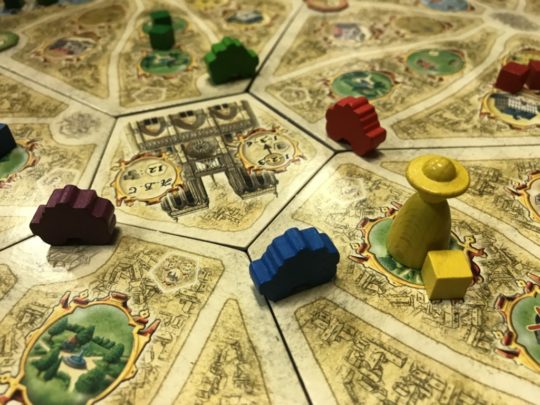
These Carriages move point to point, picking up Tokens around the board for bonus resources and points.
End of Round
After all 9 cards have been drafted and played over 3 rounds of 3 cards, you score Notre Dame then look at the end-of-round cards.
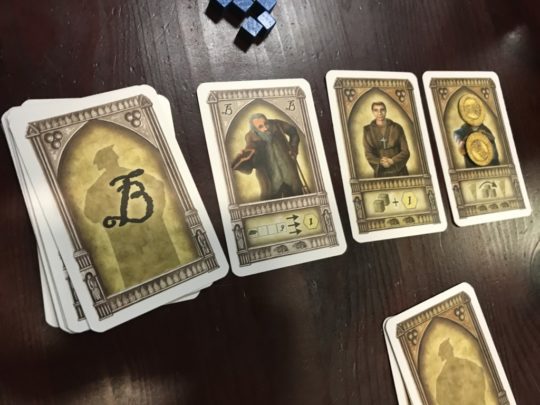
These are laid out at the beginning of the round and have 2 uses. Firstly, the bottom of each card shows the number of Rats each player’s track will go up this round. If you go over 9 Rats (representing the Plague), you lose points.
Each card also has an ability and each player can pay 1 money to use the ability on that person this round.
After 3 rounds (18 cards played) the game ends, and most points win.
Notre Dame Positives
My kind of game, is easy to play but very strategic.
Drafting from your own individual decks is a great mechanism. You see 3 cards, 2 of them you know you won’t see again for that round and if you want to remember what else you’ve seen you can. (If you’re able :))
The mix of things you need to do is great, making almost everything ‘must do’ every round but you can’t just do one thing. You’ll run out of cubes for starters 🙂
Notre Dame Negatives
If I had to pick one I say the art. It doesn’t bother me, but a 2017 update would be good 🙂
Summary
A very nice game that I’ll definitely play again.
Jesta ThaRogue



Leave a Reply